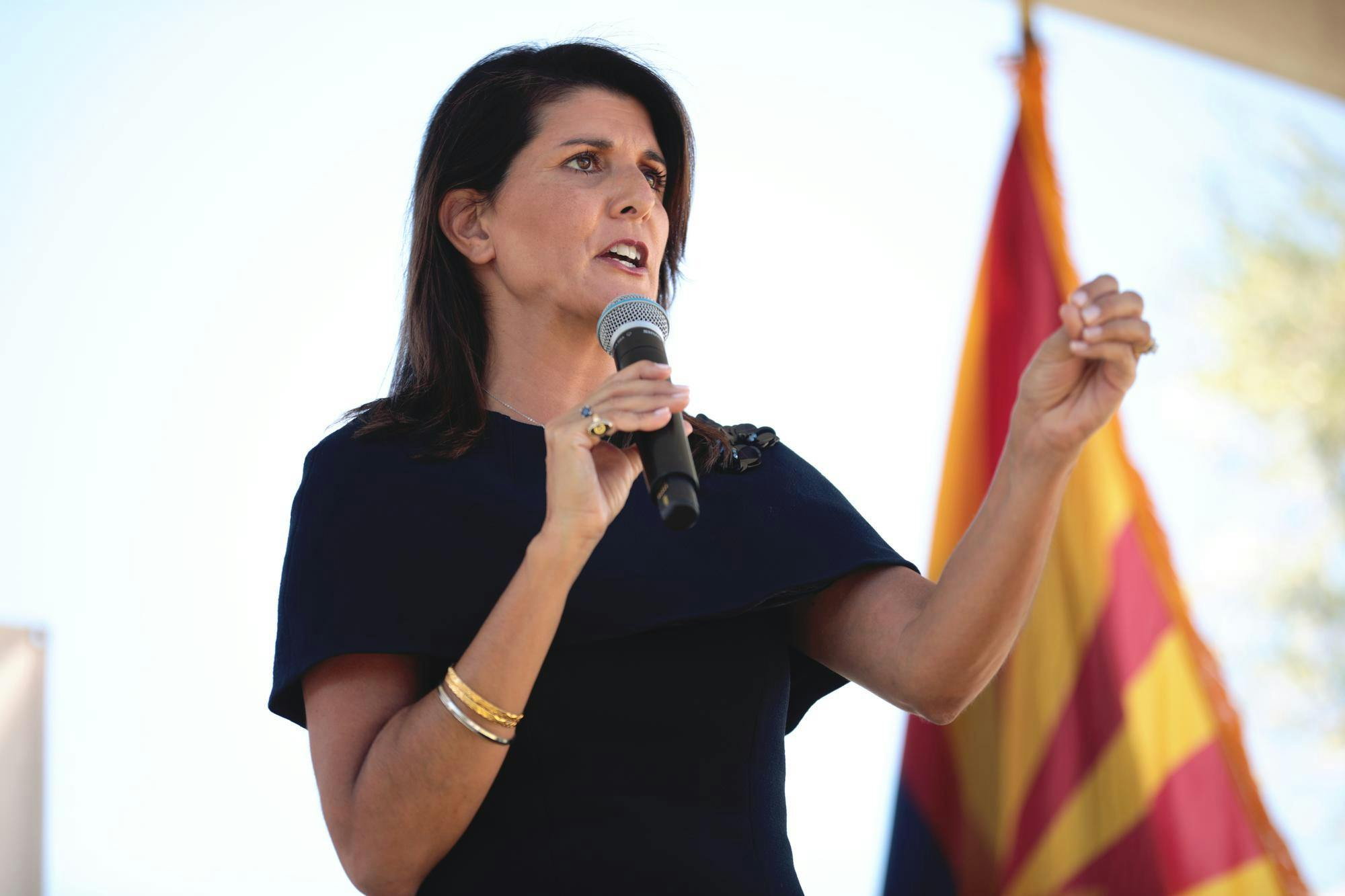With a turbulent primary underway, the Republican field of eight candidates has been whittled down to just two: former President Donald Trump, who’s battling four criminal indictments, and former governor of South Carolina Nikki Haley. After two state primary elections and looking at current polling, Trump is vastly outpacing Haley. He recently polled 26 points ahead of Haley in South Carolina, the state of the next primary and Haley’s home turf. If this trajectory continues, Haley will soon be forced to join her fellow candidates, the majority of whom have dropped out and ended up supporting Trump, the most recent one being Florida Gov. Ron DeSantis. Although one Republican winning over another may not seem to make a huge difference, it is important to look at the key policy differences between Trump and Haley. These differences may seem small but will have large implications for the future of the Republican Party, especially the viability of more moderate candidates. We should be looking for more moderate candidates because moderation in politics helps decrease polarization within and between parties. It also increases the ability for a dialogue about politics to occur in a civil manner.
Trump has refused to participate in the Republican debates so far, so it is hard to see what he might say to directly oppose others. However, we can gain an understanding of his views by looking at what he has said in the media and the actions he has taken in the past. Trump is relatively moderate when it comes to the economic policies he is promising to enact: higher wages, lower taxes and more jobs for American workers. However, when looking at his other views and personal actions, he becomes much more radical. It is clear on Jan. 6, he incited a riot on the Capitol which led to the death of four people in the crowd and five police officers. Following the Jan. 6 insurrection, Trump continuously denied involvement and continued to claim the 2020 election, which he lost to Biden, was rigged.
This radical approach has continued into his newest campaign with many of his social views. On abortion, although refusing to answer the question if he supports a national ban, Trump has said how he believes the overturning of Roe v. Wade to be “a great victory.” Trump has also advocated for the complete elimination of the Department of Education and to allow prayer in public schools. This elimination is quite drastic. Adding prayer to schools would blur the line of separation between church and state. Trump’s foreign policy is also radical, calling for the U.S. to completely eliminate its trade dependence on China in many critical areas. More dangerous than his policy platform is his inciting rhetoric. Trump has continuously used inflammatory wording when discussing relations with other countries, such as when he infamously described numerous South American and African countries as “s—hole countries.”
Unlike Trump, Haley has taken a more moderate approach during this campaign. This can be seen clearly with her education policy. She believes that the Department of Education should lose a large amount of its funding, but she does not believe in its complete elimination. In addition, though she has a similarly harsh stance on China, she stops short of many of Trump’s tariff proposals. Haley also has better experience on the world stage. She has previously served as the United States ambassador to the U.N. This experience dealing with world leaders on a constant basis gives her heightened expertise in dealing with foreign policy and politics. She has avoided the harmful rhetoric that Trump has made his signature, and notably, she believes in the 2020 election results.
Haley has aimed for the more moderate voters in the Republican party, looking to find a base of people in those who disagree with the current ‘Trumpification’ of the Republican Party. However, it seems that after losing in two states’ primaries and approaching a third loss with poll numbers looking weak in her home state, Haley’s campaign is coming to an end soon. This battle between Haley and Trump reveals much about the current climate of the Republican Party, showing how most Republicans want Trump back and support him and his views. Haley losing this battle indicates a bleak future for moderate candidates winning the Republican nomination. Her eventual loss is the end of moderate viability within the Republican party for the near future.






